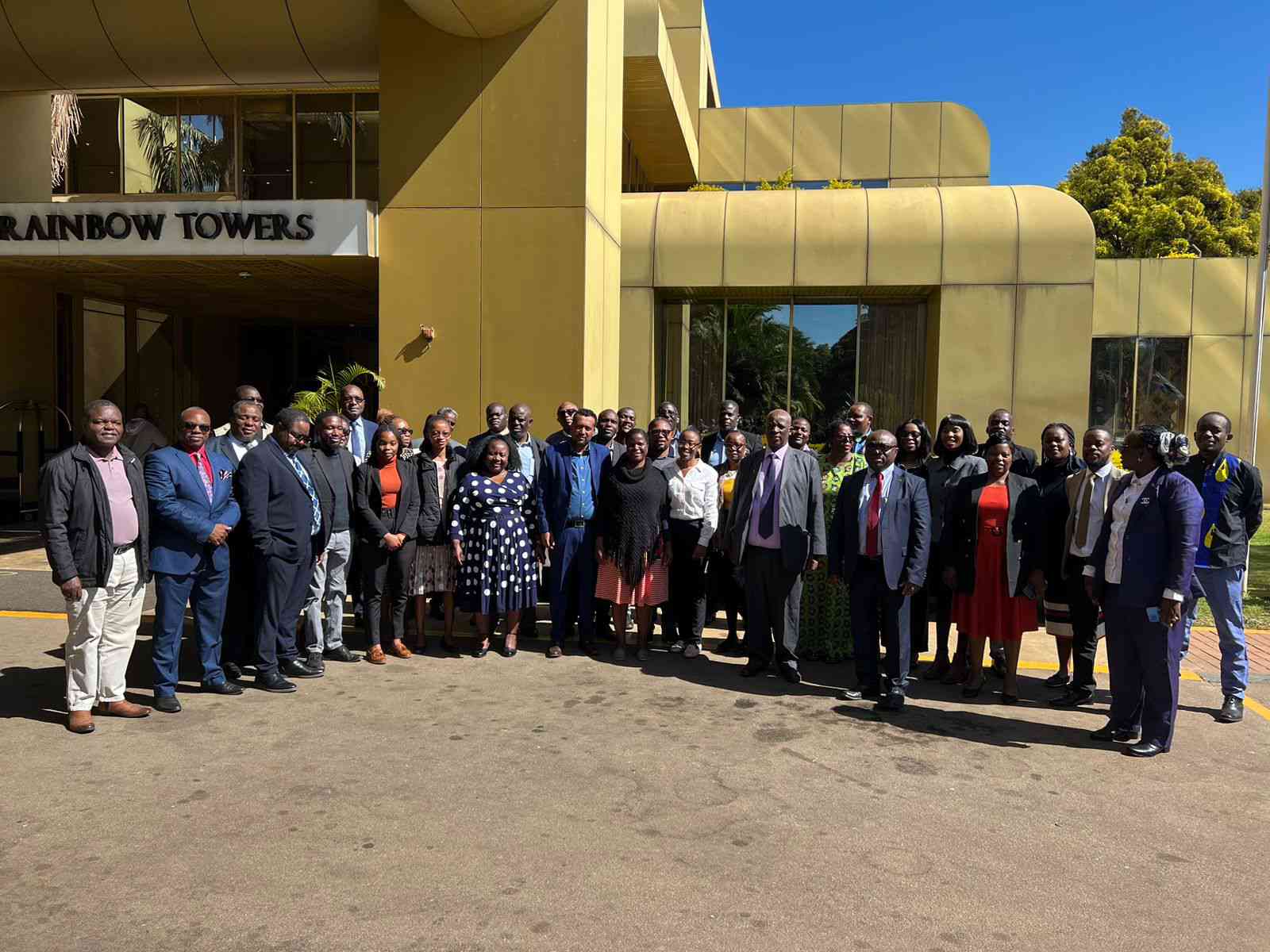|
Getting your Trinity Audio player ready…
|
“This stakeholder review and validation workshop led by the National Biotechnology Authority (NBA) and the Scientific and Industrial Research and Development Centre (SIRDC) working with the Office of the President and Cabinet is critical to obtain specific inputs and insights from government agencies, seed companies, scientists, researchers, religious groups, and media. Overall, the aim is to help enhance the draft Zimbabwe Genome Editing Communication and Strategy with its 2023 – 2035 Action Plan towards Government endorsement to guide in-country implementation for improved uptake of the tool in agriculture,” Mrs. Nzare said.
The stakeholder validation exercise follows the successful drafting by the national experts of a responsive National Communication Strategy and Action Plan to refine the strategy. The approach adopted in developing the strategy was to harness Zimbabwe’s own science and R & D expertise for a responsive strategy and plan.
In essence, the validation of the communication strategy and action plan will pave the way for the full implementation of activities that will enhance public, government, private sector, and media confidence in agricultural research and biotechnology. This is envisaged to help solidify the basis upon which the Government and other actors will effectively champion the upscaling of locally adapted genome editing and related products for commercialisation to improve industrialisation for livelihood development.
The project is a country-led initiative with technical and financial support from the AUDA-NEPAD towards an evidence-based broader understanding of genome editing among different stakeholder groups through communication and advocacy. This is with the aim to enhance the uptake of the tool to optimize agriculture in Zimbabwe and Africa at the Continental level towards the commercialization of genome-edited agricultural products at scale. The initiative is part of actualizing a key priority of Agenda 2063 on the need to push for technological advancements from biotechnological innovations in plant and animal breeding with the potential to advance continental agricultural sustainability goals and transform African economies.
“Zimbabwe is striving to attain a knowledge-driven economy. The Zimbabwe National Development Strategy 1 (NDS1) recognizes the critical role that Science, Technology, and Innovation (STI) can play in driving economic growth, social development, and environmental sustainability. The NDS1 identifies STI as one of the key enablers of development and highlights the need to harness the potential of STI to address the country’s development challenges. The strategy recognizes that STI can help to enhance productivity, competitiveness, and innovation in various sectors of the economy,” the Permanent Secretary said said.
Zimbabwe’s 2nd Science and Technology Policy of 2012 recognizes the potential of biotechnology to contribute to the country’s social and economic development. The policy acknowledges that biotechnology can be applied in various sectors such as agriculture, health, industry, and the environment. The policy proposes a range of measures to promote biotechnology applications in these various economic sectors.
In line with Zimbabwe’s drive towards achieving Vision 2030 and Agenda 2063, the Ministry has set us Innovation Hubs at various tertiary institutions under the Education 5.0 programme. He said Zimbabwe does not want to be the importer of technologies, not when we have such great potential and capacity to harness the technologies and develop local products from these technologies. For instance, we want to maintain seed sovereignty by ensuring that we use technologies to improve crop and animal breeds.
However, with great power comes great responsibility. As we explore the possibilities of GEd, it is crucial that we consider the ethical, social, and legal implications of this technology. We must ensure that GEd is used in a responsible and transparent manner. The National Biotechnology Authority is an agency under the Ministry of Higher and Tertiary Education, Innovation, Science and Technology Development with a mandate to support and manage biotechnology research, application, and development in Zimbabwe. The NBA, as the National Competent Authority on all matters pertaining to biosafety and biotechnology, will ensure the judicious application of GEd technology.
The workshop will review the Draft Zimbabwe Genome Editing Communication and Advocacy Strategy and 2023 – 2025 Action Plan which was drafted in May this year. The drafting team comprised of stakeholders in various fields who extensively discussed the GEd technology, the challenges, and opportunities it presents, as well as the ethical and regulatory frameworks that must be put in place to ensure its safe and responsible use.
“This Communication and Advocacy Strategy aims to ensure that no one will be left behind during this economic drive, hence the targeted audiences include everyone from high-level policymakers to individuals from marginalized communities,” he added.
Rev Wilfred Dimingo, the General Secretary of Zimbabwe Council of Churches, speaking on behalf of ZCC and the Zimbabwe Heads of Christian Denominations (ZHOCD), said the church inspired by the prayer of Jesus on John 17:21 and John 10:10 envisions a united, peaceful, just and prosperous nation where all citizens experience holistic salvation.
“We welcome and appreciate Genome Editing as an initiative for improved production and food security. As a church, our interest and our theological mandate are on the improved livelihoods of the people of Zimbabwe and we believe this initiative by scientists will help in improving food security.
“Food security will also contribute towards promoting peace and unity in the country. So as a Church, we are excited about this initiative by scientists and implore the scientists and all the stakeholders to implement this initiative in a responsible and transparent manner. As a Church, we are prepared to open our churches and our gatherings in spreading and conscientize people on this initiative so that people can be well-informed about this initiative to avoid misinformation about the process,” Rev Dimingo said.
